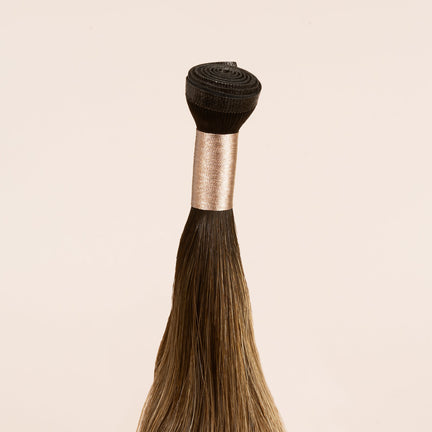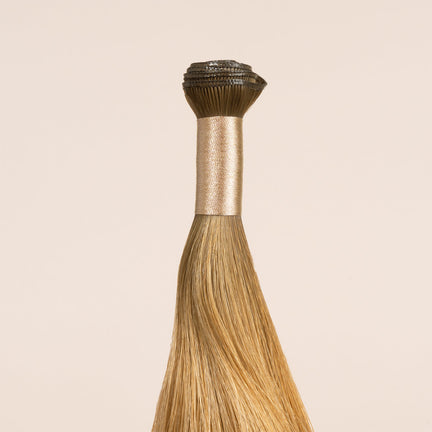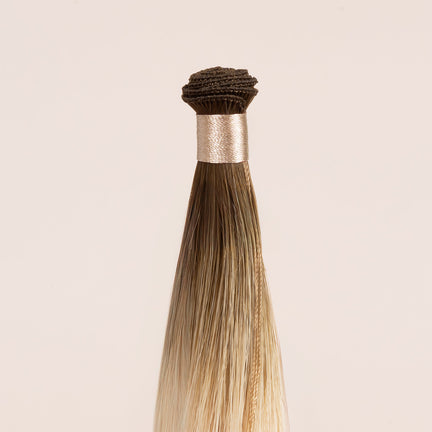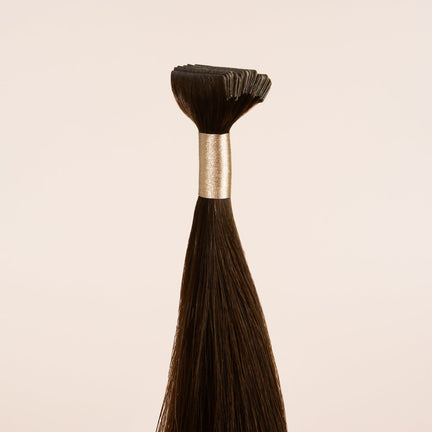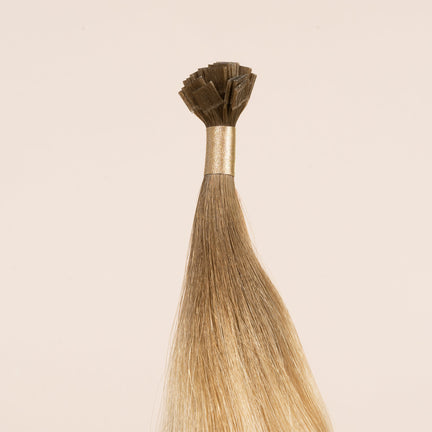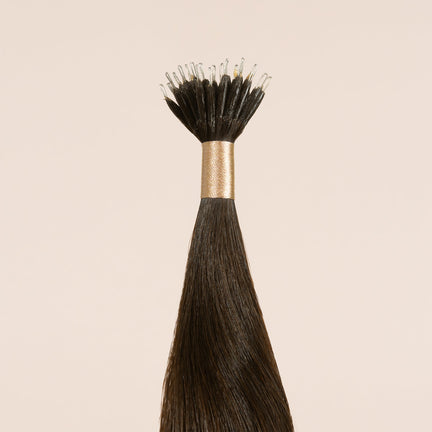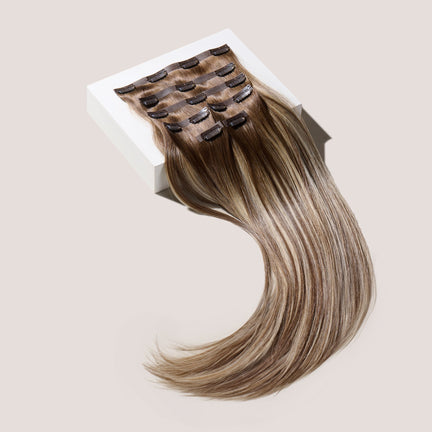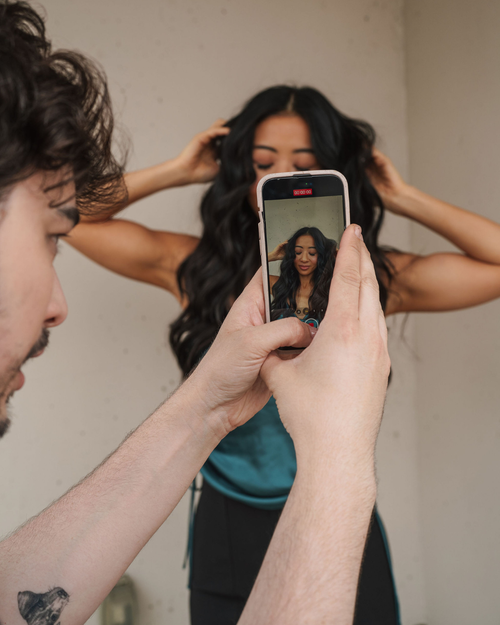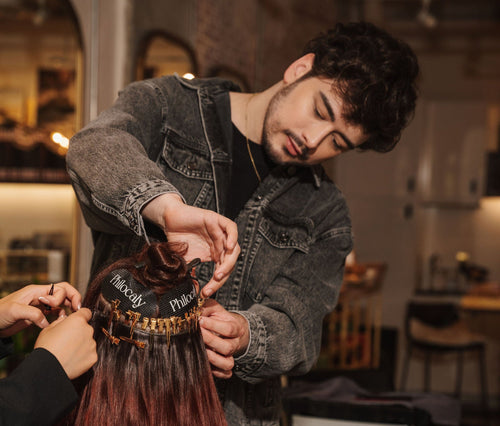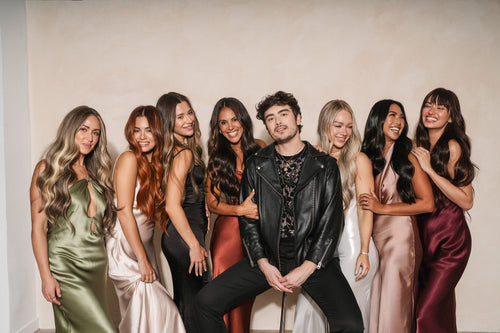How to Protect Your Extensions from Sunscreen—and Fix the “Pinky” Problem
May 23, 2025
Have you noticed your beautiful blonde extensions turning an unexpected shade of pink or orange as the weather warms up? If your extensions stayed flawless all winter but suddenly started shifting colours with the sunshine, the culprit may surprise you: sunscreen.
Yes, while sunscreen is a must-have to protect your skin from harmful UV rays, it can wreak havoc on your extensions if you're not careful. Here’s what you need to know to keep your Philocaly Hair Extensions looking flawless this summer.

What in Sunscreen Causes Hair Extensions to Change Colour?
The main offenders are two common ingredients found in many sunscreens: Avobenzone (also known as Butyl Methoxydibenzoylmethane) and Octocrylene .
Avobenzone is widely used for its broad-spectrum UV protection. However, it breaks down quickly in sunlight—usually within 30 minutes.
Octocrylene is added to stabilize Avobenzone and extend its effectiveness. Together, they work well to protect your skin but not your hair.
When these ingredients mix with iron-rich water (like most tap water), a chemical reaction can occur. The result? Oxidation—similar to rust—which causes pink, orange, or brassy stains on your extensions. This reaction is particularly common after repeated exposure over several sunny days.
How to Prevent Sunscreen from Staining Your Extensions
1. Avoid Contact Between Sunscreen and Hair
This sounds simple but can be tricky in practice. Long extensions often brush against sunscreen-covered shoulders, backs, or arms. Add in sweat, touch, and wind, and it becomes nearly impossible to keep your strands safe.
Pro Tip: When applying sunscreen, tie your extensions up into a bun to keep them off your skin. Wait for your sunscreen to fully absorb before letting your hair down.
2. Switch to Avobenzone-Free Sunscreen
Look for sunscreens that are “Avobenzone-free” . They typically use non-reactive, mineral-based ingredients like zinc oxide or titanium dioxide , which are not only better for your hair but also for the environment. These formulas tend to be higher-end and may come with a higher price tag—but they’re worth it if you want to preserve your extensions.

Top Mineral Sunscreens Safe for Hair Extensions
Here are our top recommended sunscreens that are extension-friendly and free from harmful ingredients:
1. Blue Lizard Sensitive Mineral Sunscreen SPF 30+
Active ingredients: Zinc Oxide, Titanium Dioxide
Why it’s great: Dermatologist-recommended, no irritating chemicals, very gentle on skin and hair.
2. Hawaiian Tropic Mineral Sun Milk SPF 30
Active ingredient: Zinc Oxide
Why it’s great: Lightweight, tropical-scented, with a smooth, non-whitening finish.
3. Hello Sunday The Mineral One SPF 50
Active ingredient: Titanium Dioxide
Why it’s great: High protection, reef-safe, non-greasy formula perfect for daily wear.
4. Salt & Stone Mineral Sunscreen Lotion SPF 30/50
Active ingredients: Zinc Oxide, Titanium Dioxide
Why it’s great: Luxe, cruelty-free brand with clean ingredients and no residue.
5. Hello Bello Mineral SPF 50 Sunscreen Lotion
Active ingredient: Zinc Oxide
Why it’s great: Affordable, family-safe, broad-spectrum protection that won’t stain.
6. Sun Bum Mineral SPF 50 Sunscreen Lotion
Active ingredient: Zinc Oxide
Why it’s great: Beachy scent, vegan, and designed with hair protection in mind.
7. LHC Invisible Broad Spectrum Mineral Sunscreen SPF 30
Active ingredients: Titanium Dioxide, Zinc Oxide
Why it’s great: Invisible finish with high performance, specially formulated for sensitive hair and skin.
8. Thrive Natural Mineral Face Sunscreen SPF 30
Active ingredients: Non-nano Zinc Oxide
Why it’s great: Lightweight, fast-absorbing, packed with antioxidants for skin health.
What to Do If Your Hair Extensions Have Turned Pink or Orange
If your extensions have started to show signs of pink, orange, or peachy staining—don’t panic. There are solutions. However, your first and best option is to book an appointment with your hairstylist. Professional stylists have the tools, products, and training to safely and effectively remove unwanted tones without risking further damage to the extensions. This is always the recommended approach, especially if your extensions are a luxury investment like Philocaly Hair Extensions.
At-Home Fix: Step-by-Step Guide (If You Can’t Get to a Salon)
Wash your hair thoroughly with a gentle, clarifying shampoo to remove surface product buildup.
Apply Malibu C Hard Water Treatment to the stained areas. Follow the instructions and massage well before rinsing.
Use a purple shampoo to neutralize any remaining brassiness. Leave it on for no longer than 1 minute to avoid over-toning or purple staining.
Apply a deep conditioning mask , focusing on the mid-lengths and ends. Avoid roots and bonds to maintain the integrity of your extensions.
Rinse thoroughly and blow-dry or air-dry as usual.
Optional (But Recommended):
If staining persists, you may need to repeat the process 2–3 times to fully eliminate the discolouration.
Protect Your Investment
Your Philocaly Hair Extensions are a premium product—treat them that way. From applying sunscreen mindfully to choosing the right formulas, these simple steps can go a long way toward protecting both your hair and your investment.
Bonus Tip: Keep a reef-safe, Avobenzone-free sunscreen in your beach bag and an extra hair tie for impromptu buns. Your skin and your strands will thank you.

Frequently Asked Questions
Why did my blonde extensions suddenly turn pink or orange?
The most common reason is a chemical reaction between your hair extensions, sunscreen (specifically ingredients like Avobenzone and Octocrylene), and minerals in water—especially iron. This combination causes oxidation, which leads to peachy or brassy discolouration in light blonde hair.
Can I still wear sunscreen and keep my extensions safe?
Absolutely! Just be mindful of ingredients. Choose a sunscreen that’s free of Avobenzone and Octocrylene , and avoid direct contact with your hair. Putting your hair in a bun before applying sunscreen is a great way to minimize transfer.
What kind of sunscreen is safe for hair extensions?
Look for mineral-based sunscreens with active ingredients like zinc oxide or titanium dioxide . These are less reactive and much safer for blonde or light-toned extensions.
Can I fix the pink/orange tint at home?
While there is an at-home method (using Malibu C Hard Water Treatment and purple shampoo), the best option is always to visit your stylist first. A professional will have the expertise to remove the staining safely without compromising your extensions.
